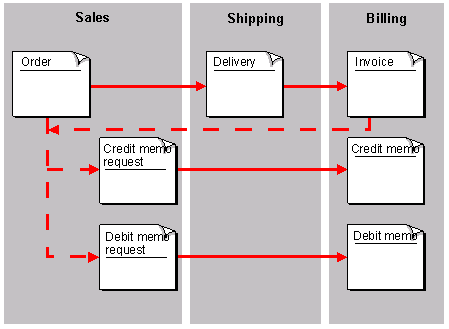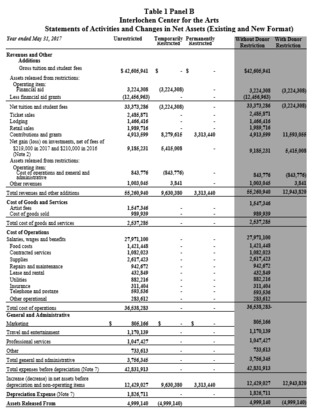
Accountants calculate net income by subtracting a business’s expenses from its revenue. If revenue is lower than expenses, the business experiences a net loss. Gains include money made from one-time, non-business activities, like selling off old equipment or unused buildings. Income statements focus on four key items — revenue, gains, expenses, and losses — which bookkeepers use to calculate net income. Companies typically prepare balance sheets at the end of every quarter, but individuals can prepare them at any time. Assets, liabilities, and shareholders’ equity comprise a balance sheet.
- Another consideration is their availability—can they work on their own time or would you prefer someone to be available for specific hours each day?
- Companies typically prepare quarterly and annual income statements.
- The last three years must have been brutal for you if you own a small business.
- YHB has served families, estates and trusts, nonprofits, and businesses in retail, healthcare, and other fields for over seventy years.
If you have a larger or more robust business structure, like a limited company or LLC, you probably shouldn’t do your own tax return because it takes a lot of time and expertise to do so. As you’ll find with some of the firms in this review, billing methods can vary beyond a monthly fee, such as an hourly, pay-for-performance fee, or rates based on the number of monthly transactions. In all cases, it’s important to crunch the numbers to see what rate or form of billing makes sense for your business. Managing your company’s finances can be challenging if you aren’t familiar with debits, credits and recording transactions but who says you have to go it alone? An accountant can provide the financial expertise and guidance you need to run your business effectively.
Set up a small business payroll system
Ensure any potential accountant or accounting firm offers year-round services. Year-round services track your finances and will be more effective at tax time while maintaining accurate financial reporting and supporting quality decision-making. Although the terms accounting and bookkeeping are often used interchangeably, they are actually two very different processes.

So maybe it’s time to consider consulting an accountant, at least for your company’s first tax filing. An accountant will best be able to tell you what’s allowable and what’s not. Working with an accounting professional who understands tax laws and bookkeeping is your best option, Accountant for small business especially when compliance is at stake. Accountants can also guide your small business in more profitable directions, giving you “the biggest tax bang for your buck,” Cordano said. Bookkeepers record purchases and sales while accountants glean insights from bookkeeping data.
Find a plan that’s right for you
Most of the accounting services we reviewed are available in multiple versions, so you can start at the low end and upgrade to a more powerful edition that looks and works similarly. One of the great things about using small business accounting software is that it reduces repetitive data entry. Once you fill in the blanks to create a customer record, for example, you never have to look up that ZIP code again. When you need to reference a customer in a transaction, they will appear in a list. Depending on how long your business has been operating, getting started with a small business accounting service can take anywhere from five minutes to several hours after signing up for an account. Most of them offer free trials or a demo account and charge monthly subscription fees once you’re ready to commit.
Improving your store’s gross margin is the first step toward earning more income overall. In order to calculate gross margin, you need to know the costs incurred to produce your product. To understand this better, let’s quickly define both cost of goods sold (COGS) and gross margin. Start your free trial, then enjoy 3 months of Shopify for €1/month when you sign up for a monthly Basic or Starter plan.
What Are Accounting Firms? Why Are They Important For Your Small Business?
Then, you can get back to doing what you love with confidence in your financial future. Sign up to receive more well-researched small business articles and topics in your inbox, personalized for you. The Ascent is a Motley Fool service that rates and reviews essential products for your everyday money matters. Alternatively, follow these steps to find the best accountant for your small business. In the meantime, start building your store with a free 3-day trial of Shopify.
Freelancers, who must be approved by Paro, establish their own fees, but Paro does not list a range of typical rates you should expect to pay. According to Indeed, Paro freelancers earn an average of $46.40 per hour with a low of $23.10 per hour and a high of $77.50 per hour. The great thing about hiring a Paro freelancer is you pay only their base rate, which is a fraction of the cost of hiring one of these professionals through an accounting or bookkeeping firm. Businesses that prefer more direct business relationships can use Paro to match with an accountant or bookkeeper that best meets their finance and accounting needs.
You can also ask your local chamber of commerce if there are any accountants that would be a good fit for your business. We also suggest asking your professional service providers, such as attorneys and business advisors, if they have any recommendations. Aside from rote bookkeeping and tax filing, the most significant value-add from a small business accountant is financial analysis and teaching basic accounting concepts. Through ratio analysis, accountants pinpoint the areas where your business could improve efficiency, boosting your bottom line. Business owners lean on their accountants to suggest changes to the business model that can yield profits.
If you’re in need of the easiest ones, however, QuickBooks Online and FreshBooks are the two we recommend. While it’s at least as capable as some of the best of its competitors, Zoho Books is surprisingly affordable, and it even has a free version, though prices for paid plans increased this year. Overall, though, Zoho Books is best for businesses that use some of Zoho’s other applications, but its appeal isn’t limited to such cases. We also recommend it to small businesses, growing businesses, and established businesses that want its customizability, depth, and usability. That said, the depth of its features might be overwhelming to very small businesses but welcomed by companies with more advanced needs. Intuit QuickBooks Online is expensive, so it’s most appropriate for small businesses with a technology budget.
It’s important to look at an accountant as an integral member of your team. After all, they can play a pivotal role in the success of your business. The CGMA is a global certification issued by the Chartered Institute of Management Accountants (CIMA) for CPAs who work in business and government. This certification distinguishes professionals who have advanced proficiency in finance, operations, strategy, and management.
OnPay is our top platform for small businesses ― read our OnPay review to learn why. Although hiring an accountant is optional, they can be an enormous help with reviewing financial records and filing taxes. An experienced business accountant’s advice might be the difference between success and failure and their expertise can help guide your decisions as your business grows. ORBA provides ongoing accounting services in the form of tax consultation and other advisory roles. They offer tax planners to make the filing process as simple as possible.
Your budget should reflect the services and expertise your business requires, considering the complexity of its accounting issues. Hiring a CPA vs. an accountant and where your business is located also influence the going rate for accounting services. Some processors charge an interchange plus rate, typically around 2.9% + 30¢ per transaction. Others charge flat fees for each transaction, while some have a monthly membership model for unlimited financial transactions.
Stay up to date on the latest accounting tips and training
Credit is important for securing funding, as well as potentially financing large purchase orders in the future. Corporations and LLCs must use a separate credit card to avoid commingling personal and business assets. Start by opening up a checking account, followed by any savings accounts that will help you organize cash flow funds and plan for taxes. For instance, you can set up a savings account and squirrel away a percentage of each payment as your self-employed tax withholding. A good rule of thumb is to put 25% of your income aside, though estimates for high earners might be closer to one-third.
But once expansion begins to start, don’t delay on finding a good accountant who will keep your best interests in mind. A search for “small business accountant” will net thousands of results, and attempting to wade through them all would be a challenge. Start by crowdsourcing and asking other small business owners who they use and trust with their finances. Once you have several names, complete some internet research on their background and experience, and read any available reviews.
How much does it cost to have an accountant for a small business?
Since its founding in 2009, inDinero has been perfecting its offering of an all-in-one accounting service for small businesses. InDinero checks all the boxes, making it our choice as the best overall accounting firm for small businesses. Located in Los Angeles, Westside Financials specializes in helping clients manage their monthly close requirements and staying on top of their complete accounting cycle. A good small business accounting service provides information in seconds that will help you answer these questions, based on the input you supply. Instant search tools and customizable reports help you track down the smallest details and see overviews of how your business is performing. Android and iOS apps give you access to your finances from your mobile devices.
Do I Have the Time to Do My Own Accounting?
Therefore, to ensure you choose the accountant who is the best fit for your business, be selective and take your time with the decision. There are many additional accounting certifications that recognize specific skills. These include Accredited Payables Manager (APM), Accredited Payables Specialist (APS), Accredited Receivables Specialists (ARS), and Certified Payroll Professional (CPP).
